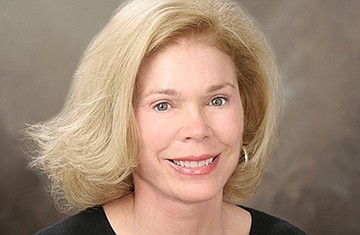Recently I had occasion to initiate an email to a person whose first name was gender ambiguous. I had never met this person and didn't know anyone who had. Not having been born yesterday, I hesitate to address a stranger by first name, especially in business-related writing, nor do I turn reflexively to the internet for answers. What to do about a person named, say, Cory?
"Hi Cory," I began, cringing. After a couple of exchanges, I asked, "Are you a male or a female?"
The answer brought me up short. The offended tone of the note indicated that gender does not matter but that she was a female.
For the next few days, I pondered her response. We humans are obviously not treating one another well enough if we take offense when asked our gender. Discounting another person based on sex not only fosters resentment (remember the movie "9 to 5"?), it also gives rise to occasional subterfuge. Certain female authors of the 19th century disguised their gender. Charlotte, Emily and Anne Bronte, took the pen names of Currer, Ellis and Acton Bell because " we had a vague impression that authoresses are liable to be looked on with prejudice "
Ditto Mary Ann Evans writing under the name George Eliot.
Had those talented writers submitted under their real names, the world of literature might have been deprived of classics such as "Jane Eyre," "Wuthering Heights," "Silas Marner," and "Middlemarch."
Granted, in business dealings the gender of a correspondent is usually immaterial. Yet in communicating with another human, we by nature want to know as much as possible about the person who is receiving our thoughts. Would we converse on the phone with someone who refused to reveal his or her name? It's rude and aggressive for even a harmless caller to insist on remaining anonymous.
In day-to-day life, what's the difference between that scenario and an insistence on remaining gender anonymous?
Sad to say, women will feel threatened by a request for gender identification until they are afforded the same bred-in-the-bone respect that men enjoy. Do the revelations of the #MeToo movement leave any room for doubt that we have a long way to go?
Which brings us back to Cory and her prickly response to my question. Our hackles rise if we sniff gender bias cooking in a question. Before the days of Google and social media, I could have submitted columns under my first two initials and last name, refusing to identify myself further. I could have declined to send a photo to run with my pieces.
I suspect that editors would have taken a pass on publishing my submissions. If they had run my columns, however, would readers have been curious about my gender? That's not always a bad thing, but it can be. We would do well to confront our own subtle, subconscious biases honestly. Ask yourself. Why would you want to know?
Carol Megathlin is a writer living in Fairhope, Alabama, and Athens, Georgia.
